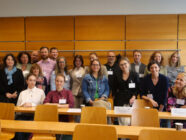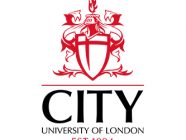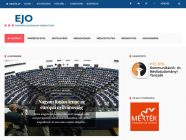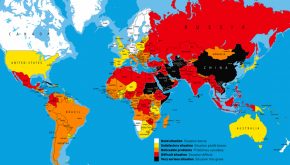
Foto: Marcus Kreutler
Wenn Forschung, Praxis und Studierende zusammenarbeiten: Das European Journalism Observatory organisiert gemeinsam mit dem slovenischen Zweig des Forum for European Journalism Students (FEJS), dem Institut für Kommunikationswissenschaften und Journalistik der Karls-Universität Prag und dem Erich Brost Institut für Internationalen Journalismus eine pre-conference bei der diesjährigen Konferenz der European Communication Research and Education Association (ECREA) in Ljubljana. Am 23. September 2024 laden wir Forschende, Journalist:innen und Studierende ein, zu diskutieren, wie wir gemeinsam aktuelle Herausforderungen im Journalismus angehen können.
CALL FOR ABSTRACTS
Dissemination activities and the practical impact of media and journalism research have become increasingly essential categories for evaluating scientific work. However, current megatrends such as the impact of AI public communication or the challenges posed by fake news also highlight the importance of constant mutual exchange between the two fields: When researchers have long tried to attract the working practitioners’ interest in their work, they are increasingly seen as attractive partners to understand current problems and develop innovative solutions. Research is, at least partly, leaving a role purely monitoring the field to become a more active partner in shaping the future of journalism and public discourse (see also Mediadelcom, 2022).
Still, such exchange needs infrastructures – the metaphoric bridges between time-crunched practitioners and researchers longing to communicate a complete picture of their work.
The pre-conference proposes to showcase subject areas of increased cooperation, qualified media criticism, innovative projects, and examples of successfully built “bridges.” A common thread is the European Journalism Observatory: The platform celebrates its 20th year of bridging journalism practice, research, and European borders – it is currently publishing in 13 languages, making current research or practical insights available to an interested public. Moreover, it has developed a considerable impact with additional activities: From comparative research on migration coverage that holds up the mirror to media in different countries (Fengler & Kreutler, 2020; Kreutler et al., 2022) to involvement in debates on self-regulation, e.g., in Poland. This part of the pre-conference also looks back at a predecessor at the ECREA conference held in Lisbon in 2014: How has work on crossroads of research and practice changed in the past ten years?
The pre-conference also gives special consideration to a group of “living links“ between academia and journalism practice that is often overlooked: Students of journalism and communication often carry their insights from academic training into the newsrooms when they start their journalistic career – others bring valuable experience from practical work to create an academic career. Early-career communication experts can be valuable translators and ambassadors for the “other side” – a role that the EJO acknowledges through a special article series. The pre-conference will include a specific student and early-career professional perspective through cooperation with the Forum for European Journalism Students.
The European Journalism Observatory | EJO consortium is hosting the event in cooperation with:
Forum for European Journalism Students (FEJS) / Slovenian branch – an international organization dedicated to the exchange of information between European Journalism students, young professionals, and even citizens interested in the journalism field (http://fejs.info).
Institute of Communication Studies and Journalism at Charles University, Prague (ICSJ) – department of Faculty of Social Sciences was established in 1993 (https://iksz.fsv.cuni.cz/en).
Erich Brost Institute for International Journalism, Dortmund (EBI) – the German partner of EJO, situated at TU Dortmund University (https://brost.ifj.tu-dortmund.de/en/).
Schlagwörter:Call for abstracts, ECREA, EJO





















